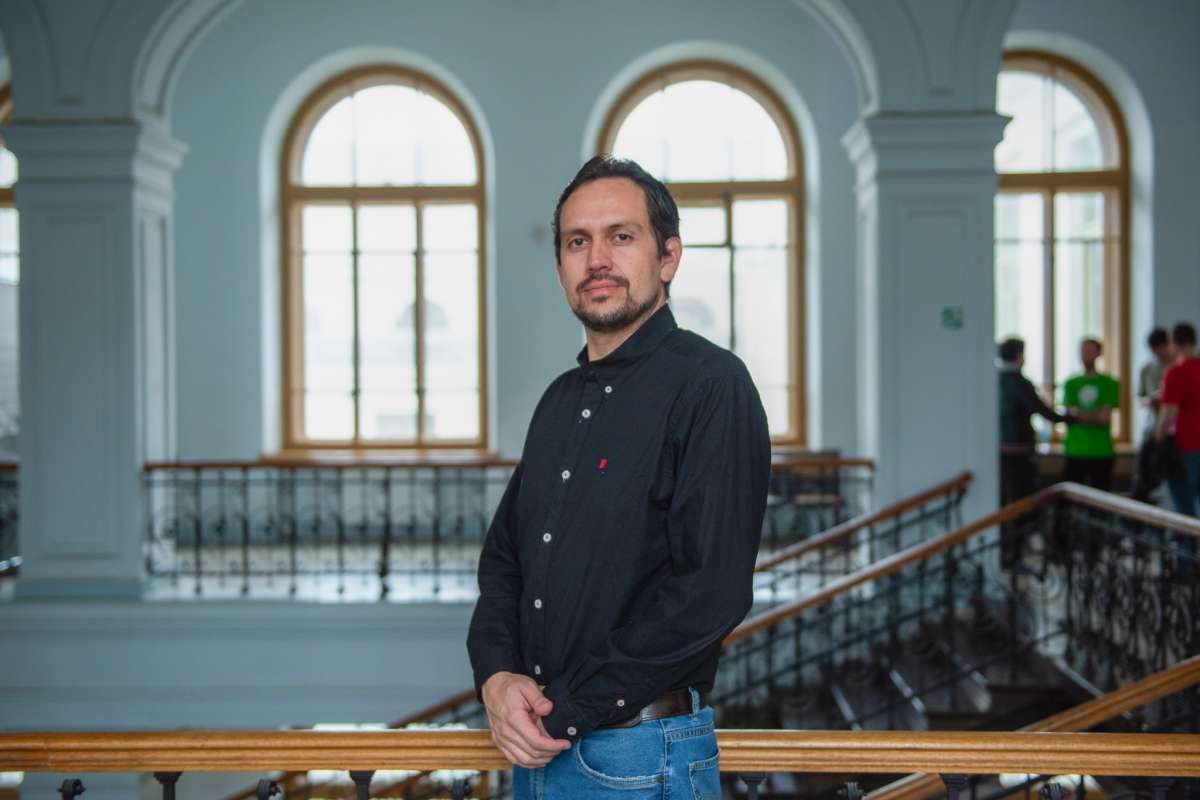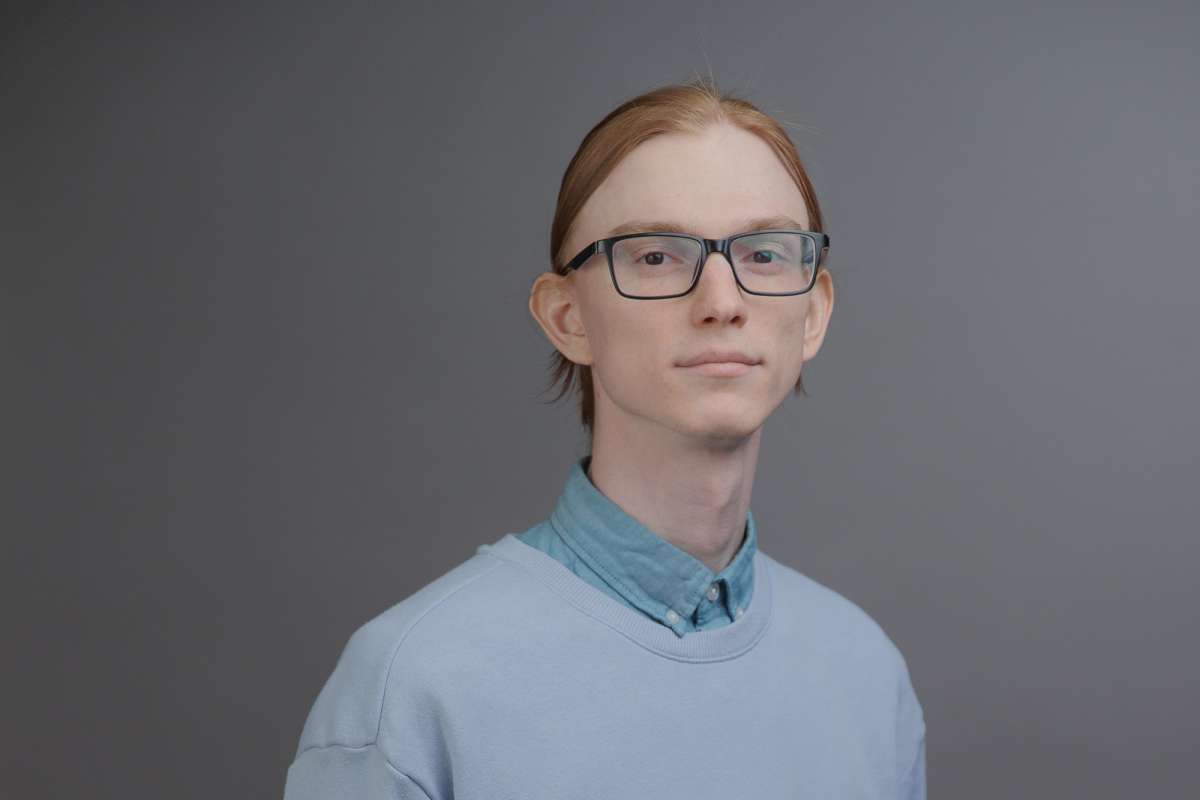«Tempus Aspirandi»: Freddy Cuervo Camargo — engineer, teacher, researcher.

Today in our «Tempus Aspirandi» interview we meet Freddy Cuervo Camargo, a Colombian energy engineer with 15 years of experience. In the interview, he shared his story: from undergraduate years at his native University of Colombia to scientific research at St. Petersburg's Politech.
Welcome Freddy, please tell us about your education, experience and current research interests.
I graduated from the Universidad Pedagógica y Tecnológica de Colombia (Universidad Pedagógica y Tecnológica de Colombia), then studied power transmission and distribution systems at the Universidad de los Andes (Universidad de los Andes). I then obtained a Masterʼs degree in Electrical Power Engineering and Electrical Engineering at St. Petersburg Politech, where I am currently in my second year of PhD studies in 2.4.3 Electrical Power Engineering, supervised by Vasily Vasilievich Titkov.
In Columbia I was engaged in design, maintenance and construction of power lines and substations for more than 15 years. I also taught electrical machines and power electronics at La UPTC for 5 years.
Now I am working on my PhD thesis on high-voltage insulated cables, and I am looking for methods to estimate the power of electric current taking into account heat transfer and cable configuration.
.jpg)
What were your initial expectations of graduate school and to what extent did they coincide with reality?
From the beginning, I expected graduate school to be a great, yet challenging experience and to allow me to deepen my knowledge and skills in the field of electrical engineering. I prepared for this by taking a variety of courses, looking at research and internship opportunities, and socializing with professors and fellow students. I also hoped to have the opportunity to focus on my research interests.
In reality, my experience largely met these expectations. The courses were challenging and helped me expand my understanding of topics important to me. The Institute of Energy has a supportive environment for scientific discussion and collaboration, making my learning experience more productive.
It is worth mentioning that I had to face certain difficulties: language barrier (despite being taught in English, some information is available only in Russian), as well as the need to combine research work with academic duties. Nevertheless, this experience proved to be very useful and finally convinced me of the right choice of a career in the energy sector.
Tell us about the topic of your PhD research.
I am researching high-voltage insulated cables — I am studying how much current they can carry, taking into account heating and construction. This is an important topic, as these cables are the «arteries» of the power grid, and you need to ensure that they work reliably in all conditions. I am studying how the design and external conditions affect the heating of cables. Using models and experiments, I want to create tools to help optimize cable design and improve cable performance under real-world conditions. Iʼm also testing how different materials and insulation shapes affect bandwidth. I want to find solutions that make cables more durable and reliable. Itʼs not just theory — the results will help engineers in practice: to make power grids more efficient and safer.
What challenges do you face in your research?
One of the main obstacles is the complexity to model the thermal behavior and electrical bandwidth of these cables accurately. The interactions between material properties, environmental conditions, and cable configuration must be carefully studied, making it difficult to develop robust analytical models.
In addition, another challenge is the possibility of collecting experimental data to validate these models. Conducting experiments with high-voltage systems requires careful planning and adherence to safety regulations, which can sometimes limit the scope of testing.
The hardest part is time management. You have to make time for research, coursework, and sometimes teaching and working with colleagues. It is important to keep up with both theory and practice. In addition, you have to keep up to date with new technologies in the field of cables and insulation — everything changes very quickly in the energy industry.
What results have you obtained so far?
Using computer simulation (finite element method), I was able to analyze how different cable designs behave under load — where they overheat, how they dissipate heat better. This will help to optimize their performance in real conditions.
At the same time, I studied the latest research on the topic and identified non-obvious gaps in knowledge — this helped me to define the direction of my work more precisely.
Next, I plan to refine the model, test it with experimental data, and finally give engineers practical recommendations for selecting cables for specific tasks. So far, the progress is encouraging.
What would you improve in your program?
Postgraduate program has given me valuable experience and opportunities, but there is always room for growth: I would like more joint projects with other universities, practical master classes (like project management or grant writing), increased research funding and access to modern equipment. We could introduce a mentoring system with industry experts and make the feedback process more lively, so that the program becomes really flexible and convenient for students.
Do you plan to pursue a career in academia or industry?
I am reflecting on my professional future and am considering both paths for now. On the one hand, an academic career is close to me — I enjoy teaching, research and working with students. Managing my own projects, publications and live interaction in the classroom fit well with my aspirations.
That said, industry is also an area of interest. Now I am not in a hurry to make a final choice — the decision will largely depend on the opportunities that will open up closer to the thesis defense. I am ready to consider both options and I hope to find an application for my knowledge where I can make a real difference to the energy industry.
Freddy, thank you for the conversation! We wish that your research on high-voltage cables will lead to breakthrough results and that your thesis will become a springboard for a bright career, whether in academia or industry.



-2.jpg)